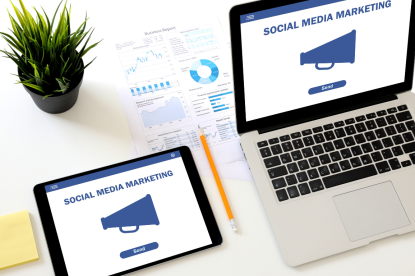Understanding Marketing Automation: What It Is and Why It Matters
Marketing automation. You’ve probably heard the term, but are you really using it to its full potential? Or are you still stuck in the trenches of repetitive, time-consuming marketing tasks?
Understanding marketing automation is key to staying ahead in today’s fast-paced digital landscape. At its core, marketing automation refers to the use of software tools and platforms to automate those repetitive tasks—email marketing, social media posting, ad campaigns. By automating them, businesses can save time and resources. That means you can focus on what really matters: strategy and creative efforts.
Customer engagement and personalized experiences are crucial in today’s market. Marketing automation helps you deliver that. It lets you nurture leads more effectively, convert them into loyal customers and drive growth and revenue.
When selecting a marketing automation tool, you want to look for features that align with your business goals. That means email marketing capabilities, customer segmentation, lead scoring and analytics. These are the building blocks of successful campaigns. Integration capabilities with your existing systems—like CRM and e-commerce platforms—are vital too. A user-friendly interface and strong customer support can make a real difference.
There are so many marketing automation tools out there. Each has its unique features and strengths. Some popular options include HubSpot, which offers an all-in-one platform for inbound marketing; Mailchimp, known for its robust email marketing capabilities; and Marketo, which is great for lead management and analytics. ActiveCampaign and Salesforce Pardot are also worth considering. Each of these tools provides valuable functionalities to streamline your marketing efforts and improve efficiency.
Implementing marketing automation requires strategy and planning. Start by defining your goals and identifying what you want to automate. That might be lead generation, customer nurturing or campaign management. Once you’ve got your objectives outlined, you can select the right tool and develop a comprehensive onboarding plan. Training your team on how to use the automation software effectively is just as important as choosing the right tool.
Measuring success is where the real magic happens. You need to track key performance indicators (KPIs) like conversion rates, customer engagement and ROI on your campaigns. Regularly analyzing these metrics will give you the insights you need to refine your strategies and improve your campaigns over time. Continuous optimization is key to sustained business growth.
Marketing automation isn’t a one-and-done deal. It’s an ongoing process of refinement and improvement. But with the right tool and a clear strategy, you can drive real growth and revenue for your business.
Frequently Asked Questions
1. How much does marketing automation software typically cost?
Marketing automation tools range widely in price, from free plans with basic features to enterprise solutions costing thousands per month. Most small to mid-sized businesses can find effective options between $200-$1,000 monthly, depending on your contact list size and needed features. Many platforms offer tiered pricing that grows with your business.
2. How long does it take to implement a marketing automation system?
Implementation timelines vary based on your chosen tool and organization size. A basic setup can be running within 2-4 weeks, but full implementation with custom workflows and integration with existing systems typically takes 2-3 months. The learning curve decreases significantly with proper training and vendor support.
3. Do I need technical expertise to use marketing automation tools?
Most modern marketing automation platforms are designed with user-friendly interfaces that don’t require coding knowledge. However, having someone on your team who understands basic marketing concepts and is willing to learn the system is essential. For more complex customizations, technical skills can be helpful but aren’t mandatory.
4. Can marketing automation work for small businesses?
Absolutely! Marketing automation isn’t just for large corporations. Small businesses often benefit the most from automation by maximizing limited resources. Start with core features like email automation and lead nurturing, then expand as your business grows. Many platforms offer scaled solutions specifically designed for small business needs and budgets.
5. How do I measure the ROI of my marketing automation investment?
Track metrics that align with your specific goals. For lead generation, measure new qualified leads and conversion rates. For customer retention, look at engagement rates and customer lifetime value. Most platforms provide built-in analytics to calculate time saved, conversion improvements, and revenue generated. Compare these benefits against your total investment (software costs plus implementation time) to determine ROI.



